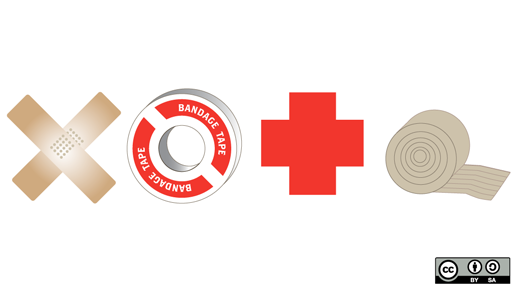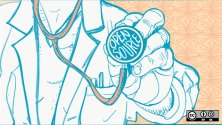Big pharma is one of the main scapegoats for the steeply rising costs of medical care. This might make sense when you learn how staggering the pricetag on necessary processes—like clinical trials—can be.
According to the Pharmaceutical Research and Manufacturers of America (PhRMA), the U.S. pharmaceutical industry’s advocacy group, it costs $1.3B (in 2005 dollars) to bring a new drug to market.
Perhaps a more patient-centric approach to comparative effectiveness research can "provide dramatic cost and time advantages," as Jamie Heywood, co-founder of PatientsLikeMe, claims. Heywood co-founded the health community site when his brother, Stephen Heywood, was diagnosed with amyotrophic lateral sclerosis (ALS) at the age of 29. The Heywood family searched the world over for ideas that would extend and improve Stephen’s life. PatientsLikeMe currently has more than 100,000 registered members sharing their real world health experiences and information on more than 500 conditions, including ALS--also known as Lou Gehrig’s disease.
Last month the social network announced the results of an ALS-patient-initiated observational study in the journal Nature Biotechnology. These results refute a 2008 study that claimed lithium carbonate could slow the progression of the neurodegenerative disease.
After the original claim was published, 348 ALS members convinced their doctors to provide them with the drug, then reported their off-label use. PatientsLikeMe created a data-acquisition form that allowed patients to track their disease status over time. For the control sample, they developed an algorithm to match patients who reported taking lithium carbonate with a number of other ALS patients that had similar disease courses. By using a matched control group, PatientsLikeMe was able to reduce biases associated with evaluating the effects of treatment in open-label, real-world situations.
Just nine months later, at the International ALS/MND Symposium, PatientsLikeMe presented preliminary results that lithium carbonate was not having an observable effect on the disease progression of these patients. The results were revealed before any of the formal follow-up trials even enrolled patients.
Though the results were disappointing for ALS sufferers, the study identified five potential advantages of using social media to monitor patient-reported drug use outcomes:
Speed
It took only nine months from initiation of the tool (March 2008) to the first public sharing of preliminary results (December 2008).
Cost
Online studies have lower marginal costs per patient as compared with thousands of dollars per patient in traditional trials.
Patient engagement
Patients who submitted data using the PatientsLikeMe website were connected with other patients, which may have a range of benefits added social support and community.
Patient access
With an online component, a study or desired study could more rapidly recruit widely dispersed patients with rare conditions. It also helps to overcome selection bias favoring patients living near specialist centers.
Availability of control participants
Clinical outcome data is passively collected from thousands of patients who served as potential matched controls.
"This is the first time a social network has been used to evaluate a treatment in a patient population in real time," says Heywood. "While not a replacement for the gold-standard double-blind clinical trial, our platform can provide supplementary data to support effective decision-making in medicine and discovery. Patients win when reliable data is made available, sooner."
People already use the internet (a lot! endlessly!) to diagnose, evaluate, and discuss medical issues. So why not put that energy and work to some good use accelerating clinical discovery?






Comments are closed.